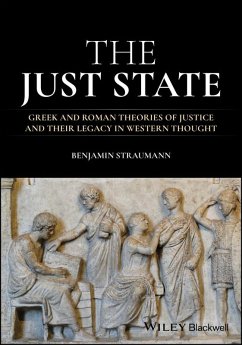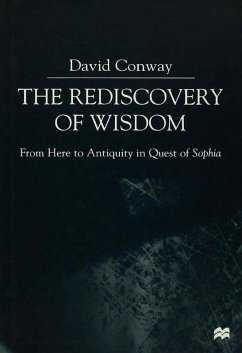An intellectual history of one of the most important contributions to Western society
The Just State explores influential Greek and Roman ideas about justice and their institutional context, and discusses their legacy in later political thought. Bringing Greco-Roman and modern ideas into conversation with each other, Benjamin Straumann traces the history of ancient political thought by focusing on classical ideas about justice.
With a readable narrative style, Straumann places Greek and Roman theories of justice in their historical context, starting from Homer and the pre-Socratic period through to the later Roman Empire, and outlines the respective contribution of the Greek and Roman traditions of thinking about justice to early modern and Enlightenment political thought. Concise chapters address Athenian democracy, the Sophist movement, the political philosophies of Plato and Aristotle, the origins of constitutionalism in the Roman Republic, classical influences on the American and French revolutions, and more.
Highlighting how modern debates on justice can be enriched by an engagement with their classical foundations, The Just State:
The Just State: Greek and Roman Theories of Justice and their Legacy in Western Thought is an excellent textbook for undergraduate classes on the history of political thought and graduate seminars on classical political theory and ancient philosophy.
The Just State explores influential Greek and Roman ideas about justice and their institutional context, and discusses their legacy in later political thought. Bringing Greco-Roman and modern ideas into conversation with each other, Benjamin Straumann traces the history of ancient political thought by focusing on classical ideas about justice.
With a readable narrative style, Straumann places Greek and Roman theories of justice in their historical context, starting from Homer and the pre-Socratic period through to the later Roman Empire, and outlines the respective contribution of the Greek and Roman traditions of thinking about justice to early modern and Enlightenment political thought. Concise chapters address Athenian democracy, the Sophist movement, the political philosophies of Plato and Aristotle, the origins of constitutionalism in the Roman Republic, classical influences on the American and French revolutions, and more.
Highlighting how modern debates on justice can be enriched by an engagement with their classical foundations, The Just State:
- Examines the impact of Greek and Roman political thought on modern ideas and institutions
- Discusses the emergence of the city-state and the origins of Greek political philosophy
- Describes the political ideas of the Hellenistic philosophical schools, such as the Stoic idea of natural law
- Surveys the political philosophy found in influential works by Plato, Aristotle, Cicero, St. Augustine, and other classical thinkers
- Explores the reception history of Roman ideas about justice from the re-discovery of the Roman law of the Digest c. 1100 CE to early modern thought about politics
The Just State: Greek and Roman Theories of Justice and their Legacy in Western Thought is an excellent textbook for undergraduate classes on the history of political thought and graduate seminars on classical political theory and ancient philosophy.
Dieser Download kann aus rechtlichen Gründen nur mit Rechnungsadresse in D ausgeliefert werden.









